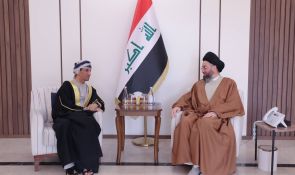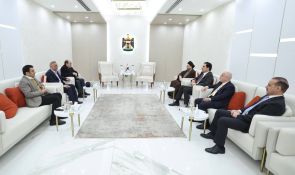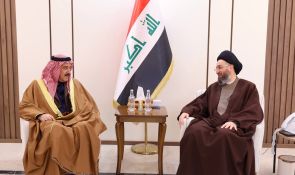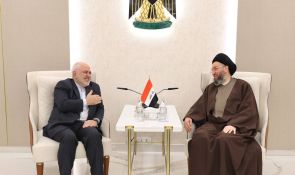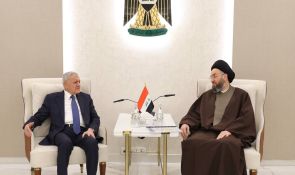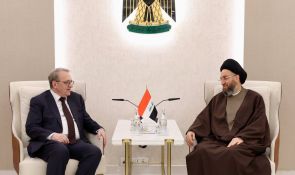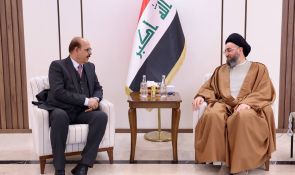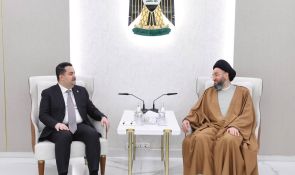Sayyid Al-Hakeem renews calls for a balanced majority government that notes Iraqi components’ social weight
In a conversation with several clans’ Sheikhs and the Husseini processions servers in Najaf Al-Ashraf, Wednesday 11/5/2022, Sayyid Ammar Al-Hakeem, head of Al-Hikma National Movement, recalled the triad of Iraqi clans, Husseini rituals, and Religious Reference, this triad that preserved Iraq and Iraqis, as well as the importance of confronting intellectual and social deviations. H.E. said that there is a direct relationship between the prevalence of deviations of all kinds and the weakness of the political system.
His Eminence pointed out that Iraq, in the eyes of others, differs from it in the eyes of its people and sons, and the difference between the two views stems from the people of Iraq’s immersion in details, while the other’s view is general and comprehensive and notes the positives in general, stressing that the most prominent characteristic of this stage is that, after six months of the elections that produced unbalanced results, the conflict did not take on sectarian or violent dimensions, but rather remained in its peaceful political framework. We also noted acceptance and acquiescence to the decisions and outputs of state institutions, despite the strangeness of some of them and sometimes dissatisfaction with them, in addition to the communication between political powers and personalities despite the different visions and positions.
His Eminence renewed his position calling for a balanced majority government that notes the social weight of the Iraqi components, especially the largest social component, indicating the importance of the transitional phase between consensus and the majority by allowing the powers willing to participate and calling for the protection of the opposition. H.E. also called for encouraging the opposition by giving it oversight roles in state institutions.


